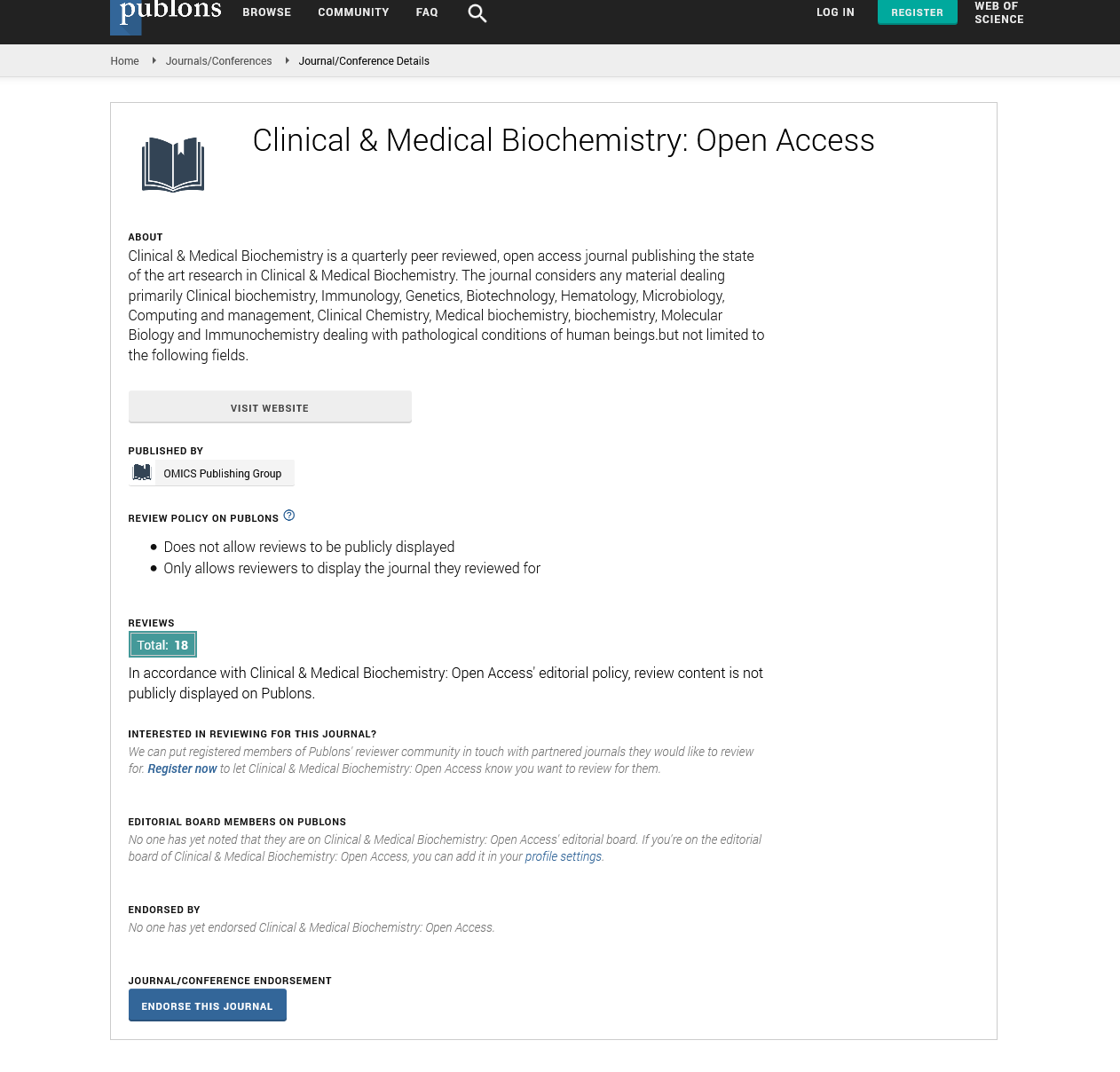Indexed In
- RefSeek
- Directory of Research Journal Indexing (DRJI)
- Hamdard University
- EBSCO A-Z
- OCLC- WorldCat
- Scholarsteer
- Publons
- Euro Pub
- Google Scholar
Useful Links
Share This Page
Journal Flyer

Open Access Journals
- Agri and Aquaculture
- Biochemistry
- Bioinformatics & Systems Biology
- Business & Management
- Chemistry
- Clinical Sciences
- Engineering
- Food & Nutrition
- General Science
- Genetics & Molecular Biology
- Immunology & Microbiology
- Medical Sciences
- Neuroscience & Psychology
- Nursing & Health Care
- Pharmaceutical Sciences
Commentary - (2023) Volume 9, Issue 4
Plasma cfDNA NGS A New Frontier in Infectious Disease Diagnosis for Hematological Disorders
Ye Jiazhen*Received: 03-Jul-2023, Manuscript No. CMBO-23-22624; Editor assigned: 06-Jul-2023, Pre QC No. CMBO-23-22624 (PQ); Reviewed: 20-Jul-2023, QC No. CMBO-23-22624; Revised: 27-Jul-2023, Manuscript No. CMBO-23-22624 (R); Published: 03-Aug-2023, DOI: 10.35841/2471-2663.23.9.179
Description
Infectious diseases pose a significant threat to individuals with hematological disorders, who often have impaired immune systems due to their underlying condition or treatment modalities. The diagnosis of infectious diseases in this vulnerable population can be challenging due to overlapping clinical manifestations, immunosuppression, and the potential for atypical presentations. Traditional diagnostic methods, while valuable, may not always provide timely and accurate results. The emergence of cell-free DNA (cfDNA) Next-Generation Sequencing (NGS) has opened new avenues for the diagnosis of infectious diseases by enabling the detection of pathogen-derived genetic material in plasma.
Hematological disorders encompass a diverse group of conditions affecting blood cells, bone marrow, and the lymphatic system. Patients with hematological disorders, such as leukemia, lymphoma, and aplastic anemia, often experience compromised immune function due to the disease itself or the treatments, including chemotherapy, immunosuppressive therapy, and stem cell transplantation. This immunosuppression increases susceptibility to a wide range of infectious agents, including bacteria, viruses, fungi, and parasites.
The presence of infectious diseases in these patients can lead to adverse clinical outcomes, increased mortality rates, and prolonged hospital stays. Diagnosing infectious diseases in patients with hematological disorders is intricate and requires a multidisciplinary approach. Conventional diagnostic methods, including blood cultures, serological assays, and nucleic acid amplification tests, have limitations in sensitivity, specificity, and turnaround time.
Additionally, these methods may fail to identify infections with atypical or emerging pathogens. The immunocompromised state of these patients can also result in altered immune responses, further complicating the interpretation of diagnostic test results. As a result, there is a critical need for innovative diagnostic approaches that can enhance the accuracy and timeliness of infectious disease detection in this population. Plasma cfDNA NGS is a cutting-edge molecular diagnostic technique that involves the sequencing and analysis of cell-free genetic material circulating in the bloodstream.
It has gained significant attention for its potential applications in various fields, including oncology, prenatal testing, and infectious disease diagnosis. In the context of infectious disorders, plasma cfDNA NGS has great potential as a sensitive and comprehensive method for identifying pathogen-specific DNA or RNA fragments, allowing for high specificity identification of infectious agents.
Plasma cfDNA NGS can detect low levels of pathogen-derived genetic material, even in cases of low pathogen load or atypical presentations. This sensitivity is particularly relevant in immunocompromised patients where traditional methods may yield false-negative results. Unlike traditional methods that target specific pathogens, plasma cfDNA NGS has the potential to identify a wide range of infectious agents simultaneously, allowing for comprehensive pathogen screening.
Plasma cfDNA NGS can enable early detection of infections, which is essential for timely initiation of appropriate antimicrobial therapy, especially in patients with hematological disorders who are at high risk of rapid disease progression. The technique can also aid in identifying antimicrobial resistance genes, guiding clinicians in selecting effective treatment regimens. Plasma cfDNA NGS requires a simple blood draw, making it a minimally invasive and well-tolerated procedure for patients, including those with hematological disorders who may have other medical complications.
The analysis of NGS data requires sophisticated bioinformatics tools and expertise, which may limit its accessibility to some healthcare settings. NGS technologies can be costly, potentially limiting its routine use, especially in resource-constrained healthcare systems. Distinguishing between pathogen-derived genetic material and non-pathogenic DNA fragments present in plasma can be complex, requiring careful interpretation of results. Standardized protocols for sample collection, processing, and analysis are essential to ensure consistent and reliable results across different laboratories.
Conclusion
The diagnosis of infectious diseases in patients with hematological disorders presents unique challenges due to immunosuppression, overlapping clinical manifestations, and potential atypical presentations. Plasma cfDNA NGS offers a potential solution by enabling the detection of pathogenderived genetic material circulating in the bloodstream. Its high sensitivity, potential for early detection, and ability to identify a broad spectrum of infectious agents make it a valuable tool for clinicians. As the field of molecular diagnostics continues to evolve, plasma cfDNA NGS has the potential to revolutionize infectious disease diagnosis in patients with hematological disorders, ultimately improving patient outcomes and enhancing the quality of care.
Citation: Jiazhen Y (2023) Plasma cfDNA NGS A New Frontier in Infectious Disease Diagnosis for Hematological Disorders. Clin Med Bio Chem. 9:179.
Copyright: © 2023 Jiazhen Y. This is an open-access article distributed under the terms of the Creative Commons Attribution License, which permits unrestricted use, distribution, and reproduction in any medium, provided the original author and source are credited.

